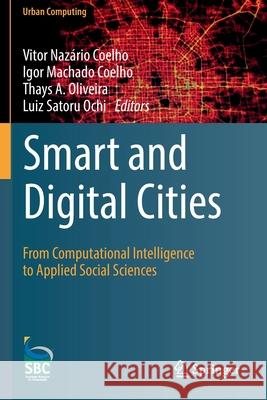Smart and Digital Cities: From Computational Intelligence to Applied Social Sciences » książka
topmenu
Smart and Digital Cities: From Computational Intelligence to Applied Social Sciences
ISBN-13: 9783030122577 / Angielski / Miękka / 2020 / 309 str.
Smart and Digital Cities: From Computational Intelligence to Applied Social Sciences
ISBN-13: 9783030122577 / Angielski / Miękka / 2020 / 309 str.
cena 603,81
(netto: 575,06 VAT: 5%)
Najniższa cena z 30 dni: 578,30
(netto: 575,06 VAT: 5%)
Najniższa cena z 30 dni: 578,30
Termin realizacji zamówienia:
ok. 16-18 dni roboczych.
ok. 16-18 dni roboczych.
Darmowa dostawa!
Kategorie:
Kategorie BISAC:
Wydawca:
Springer
Seria wydawnicza:
Język:
Angielski
ISBN-13:
9783030122577
Rok wydania:
2020
Wydanie:
2019
Numer serii:
000837538
Ilość stron:
309
Waga:
0.45 kg
Wymiary:
23.39 x 15.6 x 1.75
Oprawa:
Miękka
Wolumenów:
01
Dodatkowe informacje:
Wydanie ilustrowane











